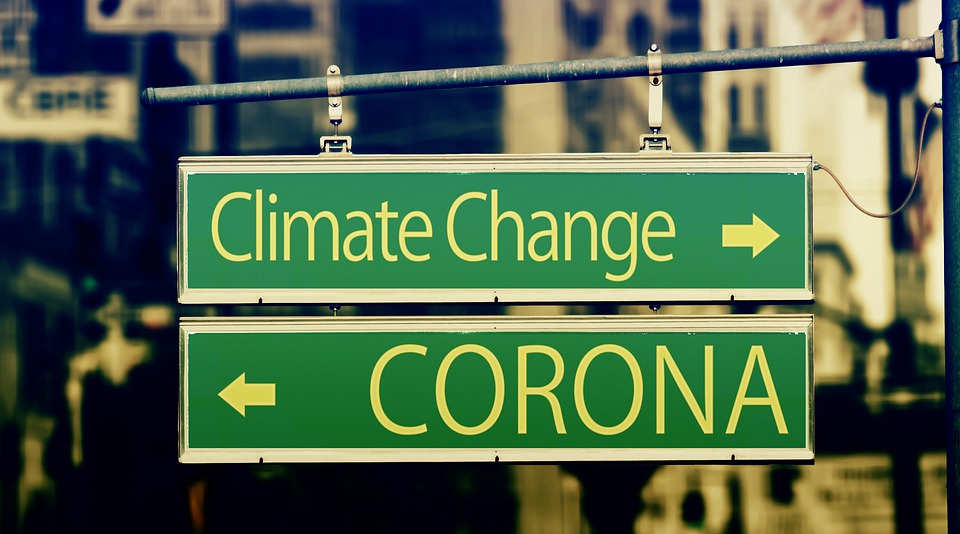
Written by Gregor Fisher
Crises can warrant the limitation of individual freedoms for the sake of common goods and conflicting individual rights. In fact, States have the responsibility to protect persons under their jurisdiction. To stop COVID-19 from spreading freely, significant restrictions now apply to, inter alia, the human rights to freedom of movement, assembly, property (including economic activity), freedom of (artistic) expression, data protection as well as private and family life – taken together, the greatest limitations to individual rights on a worldwide scale since the emergence of the global human rights system. Nobody assumes that this grinding halt to many aspects of life would have happened voluntarily. Strong government had to rise from the grave and reclaim the power it lacked when tackling the climate crisis, albeit the latter poses a comparable threat. Powerful market actors exacerbating global warming can rely on the deregulated market, the (perceived) embodiment of individual freedom. Restricting the freedoms of about 3 billion people took States mere weeks in the COVID-19 pandemic, while international corporations’ impact on the climate has not been tackled effectively in decades. This need not be so.
Legal Bases for Restrictions and Derogations
Under “normal” circumstances, the role of human rights in guaranteeing the highest possible extent of individual freedom is undisputed. Crises, such as international conflict, catastrophes, market crashes and pandemics foster returns of the collective at the expense of the individual. Under such circumstances, human rights law, including the European Convention on Human Rights (ECHR), allows for restrictions that protect public safety and order, health or morals as far as a restriction has a legal basis, is necessary in a democratic society and non-excessive. Restrictions can be warranted as well to protect other rights and freedoms. In the latter case, conflicting human rights must be balanced against one another. During the COVID-19 crisis, the rights to be protected by ECHR Member States are mainly the rights to life and health (inherent in the rights to life, freedom from torture and/or private life).
Further, States can derogate from their human rights obligations under public international law, excluding absolute rights (i. e. the prohibition of torture) and certain other obligations, in times of “war or other public emergency threatening the life of the nation”, as laid out in Art. 15 ECHR, “to the extent strictly required by the exigencies of the situation.” Other international instruments contain similar derogation provisions (e.g. Art. 4 ICCPR on which Art. 15 ECHR is based). As of 31 March 2020, six ECHR Member States have notified the Secretary General of the CoE of such derogation due to COVID-19, underlining the gravity of the (anticipated) impacts of COVID-19 within the CoE. In both cases, restriction and derogation, States have a margin of appreciation (MoA) in deciding on their policies. When public and private interests compete and in states of emergency, this margin is usually wide.
Strong Government – Results May Vary
States have been dealing with COVID-19 quite differently, and ECHR Member States are comparing these models to adapt their strategies. Infestation of the public without restrictions, as British Premier Boris Johnson, now infected with COVID-19 himself, originally planned, Chinese quarantine in the Wuhan area and comprehensive surveillance, South-Korean control of movement with little other restrictions or close to full shutdowns of public life as in large parts of the world form a broad spectrum of responses to the same issue. As illustrated above, CoE Member States have leeway in dealing with the crisis in accordance with European human rights law – but all of them have adopted urgent measures to tackle the pandemic head-on. The climate crisis is a different case.
Dear Adam Smith: Is There a Brake on the Market Train?
For reasons of economic “necessity”, i. e. the demands of free market individualism, climate goals have not been met time and time again. Indeed, global warming is exacerbating and leading to adverse impacts on public health and a significant number of deaths. Even the spread of diseases itself has been linked to climate change by researchers as well as the World Health Organisation (WHO) for a long time. The urgency of the situation and the need to protect public goods as well as individual rights and freedoms are fundamentally comparable to the COVID-19 pandemic. Also, national case law based on the ECHR (see the Dutch Urgenda Case) is developing, suggesting a positive State obligation to protect populations from the adverse impacts of climate change. Also, restrictions of the human right to property have recently been found to be in line with the ECHR in economic crises. It must be stressed that human rights restrictions must not be overused by States, but, in the name of Adam Smith, what if not the climate crisis warrants for strong government to step in and finally regulate effectively?
You Can’t Be Neutral on a Moving Train
Lately, proponents of small government and an unleashed free market are proposing to end COVID-19 safety measures as soon as possible for the sake of the economy. The price for insufficiently combatting COVID-19 to keep the market running would be hundreds of thousands of deaths. In the same vein, there are still proponents of business-as-usual marketplace ratio in the face of climate change. Both groups – and the author assumes that there is a non-negligible intersection between the two – must realize that there is no marketplace in a State whose population is ill or dead, as well as there is no economy on a planet unfit for human life. The present COVID-19-related restrictions of human rights must be democratically and judicially reviewed, meet international standards and be lifted as soon as possible, however, they illustrate that the human rights system itself allows for policies that limit individual freedoms. Just like the COVID-19 crisis warrants shutdowns for the sake of public health and safety, the climate crisis may warrant the shutdown of planet-destroying economic practices. Idly standing by on the moving train of climate change and letting the market “regulate” (see: protection mask prices!) is not an option anymore.
Addendum:
A significant part of recent ECHR-cases that held that limiting the right to property was within the MoA of Member States was decided in the context of austerity measures in Greece after the 2008/2009 economic crisis. Bear this in mind when the dust settles, and the economic impacts of COVID-19 are negotiated in your State. Another socialisation of losses and privatisation of profits in the aftermath of the crisis might (again) have an adverse impact on human rights.
Gregor Fischer holds a Master’s degree in law and is currently working as a project officer at the European Training and Research Centre for Human Rights and Democracy of the University of Graz (UNI-ETC), focusing on human rights and freedom of expression on the internet in the project NoHate@WebStyria.
This article is also available on the Conflict Peace and Democracy Policy Blog

 Is EU citizenship for sale – or for keeps? A critical analysis of the CJEU’s Golden Visa ruling.
Is EU citizenship for sale – or for keeps? A critical analysis of the CJEU’s Golden Visa ruling.  The European Union in Space: From exploration and innovation to security and autonomy
The European Union in Space: From exploration and innovation to security and autonomy  The Rise of the Right: The Threat Right-Wing Extremism Poses to Women and Feminist Efforts in Germany
The Rise of the Right: The Threat Right-Wing Extremism Poses to Women and Feminist Efforts in Germany  The silent shield – how special operations safeguard the global supply chain
The silent shield – how special operations safeguard the global supply chain 


